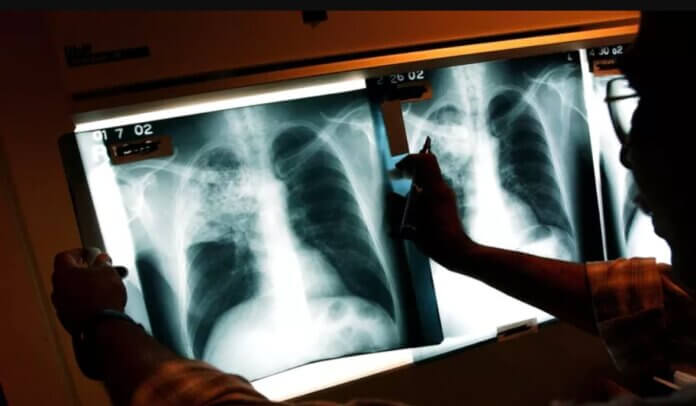A tuberculosis (TB) outbreak in the Kansas City area has gained national attention this week, with headlines claiming it’s the “largest outbreak in U.S. history” since the Centers for Disease Control and Prevention (CDC) started recording cases in the 1950s.
So far, at least 67 active cases and two deaths have been confirmed. However, the ongoing outbreak isn’t the largest in recent history, according to a CDC spokesperson. In 2021, a nationwide TB outbreak linked to a contaminated bone graft product sickened 113 patients.1
Infectious disease experts say this outbreak in Kansas began at least a year ago and poses a minimal threat to the rest of the country. This is because TB usually spreads only after prolonged exposure to someone who’s infected.
“While it’s theoretically possible for a person to contract TB after just a single exposure, most commonly, the disease is spread among people in close contact such as living in the same home or sharing an office or classroom over a prolonged period of time,” said Payal Patel, MD, MPH, an infectious disease specialist at Intermountain Health in Salt Lake City, Utah, and a spokesperson for the Infectious Diseases Society of America.
The media may have turned attention to the current outbreak recently because a spokesperson at the Kansas Health Department recently claimed that it’s the largest in U.S. history. Concerns also arose among people who traveled recently to a Kansas City Chiefs football game, which was only a few miles away from the area where many of the cases have been reported.
How Dangerous Is Tuberculosis?
TB is an airborne bacterial infection caused by the organism Mycobacterium tuberculosis. It primarily affects the lungs. If left untreated, the infection can spread to other organs and tissues and cause serious disease and even death.
Not everyone infected with TB becomes sick. People can have inactive or “latent” TB and have no symptoms—and they cannot spread TB to others. If they’re not treated with medications, they can progress to active TB and become infectious, Patel explained.
Some people, especially older adults, infants, and those who are immunocompromised, may develop active TB. The symptoms of an active TB may include a persistent cough that lasts for more than three weeks, coughing up blood or mucus, chest pain when breathing or coughing, and fatigue.2
TB germs can take a long time to die. Treatment plans for both inactive and active TB can take months and involve multiple medications. If a patient doesn’t finish the treatment course and skips a dose, they may have persistent symptoms and can spread the germs to other people.
During a TB outbreak, public workers develop lists of all close contacts of people infected and arrange them for testing, which can be done through a skin or blood test, according to William Schaffner, MD, an infectious disease expert at the Vanderbilt University School of Medicine.
In Kansas, “four CDC staff are providing on-site assistance including contact investigation, testing, and screening, and working with community leaders on health education,” a CDC spokesperson told Verywell in an email.
How Likely Is It for Tuberculosis to Spread Widely?
While TB is the most common infectious disease in the world (though it was displaced by COVID-19 during the pandemic), it’s rare in the U.S., where outbreaks usually occur in spaces where people are in close contact, such as prisons and homeless shelters.
Patel said there are cases of TB in every state at the moment. “It just happens there are more-than-usual numbers in Kansas and public health is trying to understand why,” she added.
In 2023, the national rate for TB was 2.9 cases per 100,000 people. Four U.S. states—California, Texas, New York, and Florida—usually report half of all TB cases nationwide.3
Schaffner said a TB vaccine (Bacille Calmette-Guérin) is available, but it’s not widely used in the U.S. because its effectiveness wanes over time. Even if someone’s vaccinated with the BCG TB vaccine, they can still get infected. Currently, some more TB vaccine candidates are in late-stage clinical trials.











